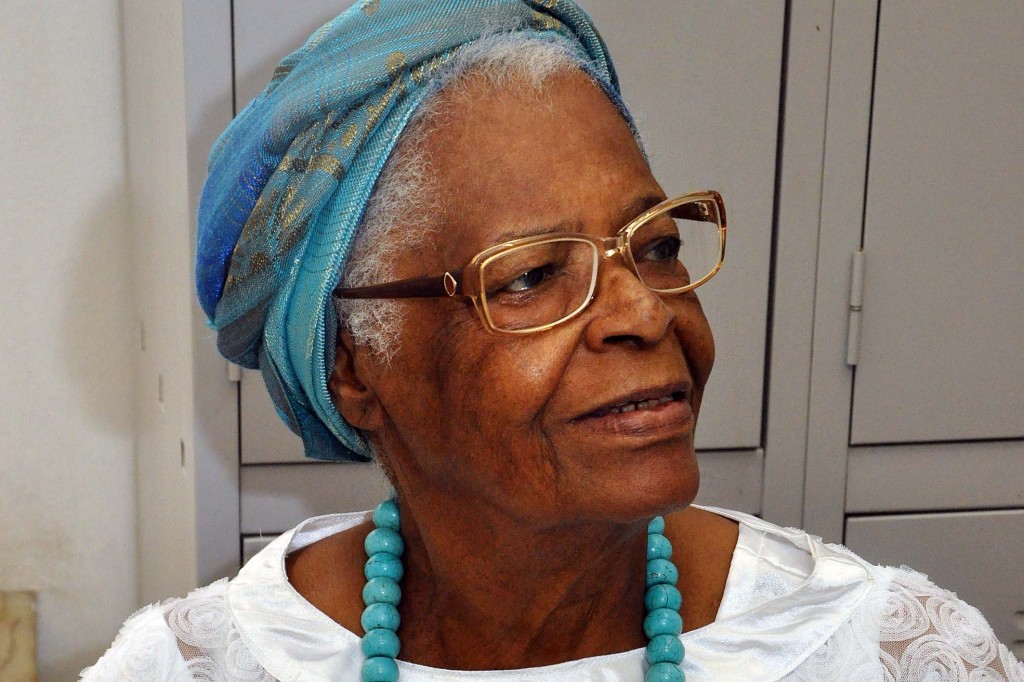Born on May 2, 1925, in Salvador, Bahia, Maria Stella de Azevedo Santos (also known as Mãe Stella de Oxóssi or Mãe Stella) is the first black woman and first iyalorixá (orixá priestess) to be inducted into the Bahia Academy of Letters. Though a retired nurse, she has written many books on African culture and widely promotes and advocates for the acceptance of Candomblé as a religion and of African-based culture across Brazil.
On March 19, 1976, she was chosen to be the 5th iyalorixá of the Ilê Axé Opô Afonjá, one of the more well-known terreiros in Salvador. In the late 70s, Mãe Stella personally appealed to the governor of Bahia to no longer require a terreiro to obtain the government’s permission to operate. Since then, terreiros have sprung up all over Salvador.
As a champion against religious intolerance and racial prejudice, Mãe Stella also sounded the call for a break with Christian syncretism and the removal of all Catholic saints from the temple’s altars. Preferring the Yorubá title iyalorixá, as opposed to the Portuguese mãe de santo, she encouraged the use of Yorubá in liturgy in naming practices, Candomblé education, and depiction of icons in order to restore Candomblé back to its African roots. It was Mãe Stella who, quite successfully, sought public recognition of Candomblé as a full fledged, legitimate religion, rather than a “cult”, “sect”, or “folklore”.







Leave a Reply